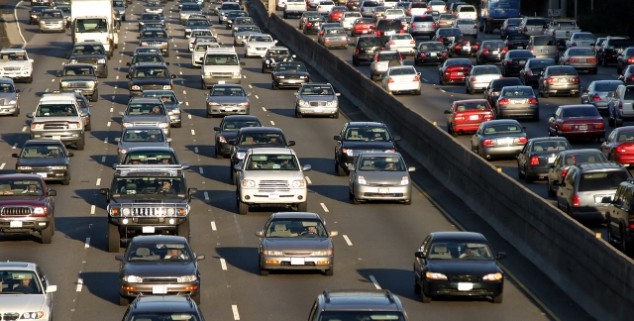News
A move to restore suspended driver’s licenses
 California motorists in a traffic jam. (Photo: Shutterstock)
California motorists in a traffic jam. (Photo: Shutterstock)With one in six California drivers – about 4.2 million people — having suspended licenses because they can’t pay court fines, a lawmaker has proposed reducing the suspensions in non-violent cases and setting up an amnesty program to help motorists.
The legislation by Sen. Bob Hertzberg, D-Van Nuys, would restore a driver’s license if it was suspended for nonviolent offenses and if the driver agrees to a court-ordered debt collection program. The legislation, SB 405, would work in conjunction with the Traffic Amnesty Program proposed by Gov. Brown, which seeks to collect at least some of the estimated $10 billion in uncollected, court-ordered debt.
Hertzberg said the traffic-court fines and an array of escalating fees and penalties have forced millions of drivers from their automobiles and unable to get to work.
“So many local jurisdictions pile on fees for minor traffic violations to make up for lost revenue during the recent economic recession,” Hertzberg said in a statement released by his office. “This trend makes it even more difficult to find and keep a job. What’s happened is a situation where minor traffic tickets can push a family deep into debt.”
Hertzberg’s office cited a study by the Lawyers Committee for Civil Rights in San Francisco that found that “low-income Californians are being disproportionately impacted by state laws and procedures related to driver’s license suspensions.”
From 2006 to 2013, more than 4.2 million licenses were suspended. During the same period, only about 71,000 driver licenses were reinstated.
“Under existing law, it is virtually impossible for the driver’s license to be restored until all the unpaid fees, fines and assessments are completely paid. This jeopardizes economic stability in the state, limits the available workforce, and forces employers to bear the cost of replacing workers and finding qualified replacement workers with valid licenses,” according to Hertzberg’s office.
Brown’s proposed Traffic Amnesty program, an 18-month effort included in his draft state budget, would raise an estimated $150 million from people who haven’t paid their tickets. It would allow them to settle their ticket debt and some other fines by covering about half the amount, in some cases. A six-month amnesty program was signed into law in 2012 and has since expired.
The suspensions “make it harder for people to get and keep jobs, harm credit ratings and raise public safety concerns,” the study noted.” Ultimately they keep people in long cycles of poverty that are difficult if not impossible for many to overcome.”
In one example cited in the study, one state resident was issued a $25 ticket for failing to notify the Department of Motor Vehicles of an address change. “Because of an almost comical series of errors, address changes and delays, that ticket mushroomed to $2,900,” according to Hertzberg.
The state’s prosecutors haven’t taken a position on Hertzberg’s bill. “But I would be concerned if there was an impact on restitution,” said Sean Hoffman, legislative director for the California District Attorneys Association.
Want to see more stories like this? Sign up for The Roundup, the free daily newsletter about California politics from the editors of Capitol Weekly. Stay up to date on the news you need to know.
Sign up below, then look for a confirmation email in your inbox.

[…] To read entire story, click here. […]
[…] bill by the Van Nuys Democrat would restore a driver’s license if it was suspended for nonviolent offenses – and if the driver agrees to a court-ordered debt […]
Breathalyzer are more of distraction then texting and driving.
My suspension was do because of a residual of my medicine, how does that warrant DUI classes and IID device.
Driver safety reinstated my license
The court because of poor representation, convicted of a DUI not 3mos 1st offense, 6mos now my children don’t have transportation for medical care.
I am ashamed to live in California